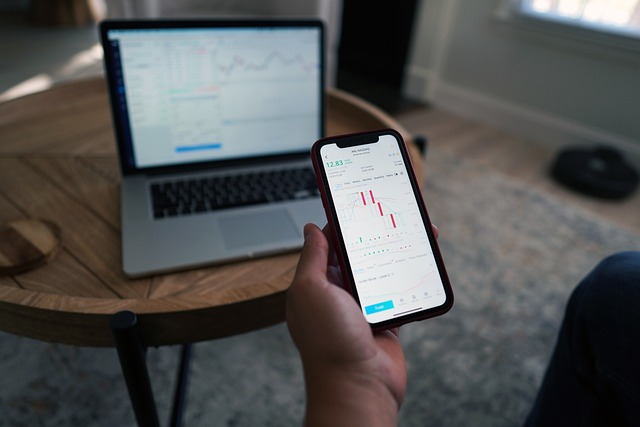Can I Trade Crypto Futures in the US? A Comprehensive Guide
As the financial landscape evolves, cryptocurrencies have emerged as a significant investment avenue for many individuals in the United States. Among the various instruments available for trading, crypto futures have gained attention, providing traders with opportunities to speculate on the price movements of cryptocurrencies without having to own them outright. In this article, we will explore the intricacies of trading crypto futures in the US, including the regulatory environment, trading platforms, potential risks, and strategies for success. This topic is crucial for anyone looking to delve into the world of cryptocurrency trading.

Understanding Crypto Futures
Before we get into the specificities of trading crypto futures in the US, it’s essential to have a solid understanding of what crypto futures are. A crypto futures contract is a legally binding agreement to buy or sell a specific amount of a cryptocurrency at a predetermined price on a set future date. This type of trading offers several advantages over traditional cryptocurrency trading:
- Ability to leverage investments
- Hedging against price fluctuations
- Access to short-selling opportunities
In my opinion, the appeal of crypto futures lies in their potential to provide traders with the tools to navigate the volatile cryptocurrency market more effectively. However, understanding the mechanics of these futures contracts is vital before diving in.
The Regulatory Landscape in the US
One of the most significant considerations when trading crypto futures in the US is the regulatory framework governing this market. The Commodity Futures Trading Commission (CFTC) is the primary regulatory body overseeing derivatives trading, including futures contracts. The CFTC has recognized cryptocurrencies as commodities, which means that futures contracts involving cryptocurrencies fall under its jurisdiction.
Registered Exchanges and Platforms
In the US, traders can engage in crypto futures trading through registered exchanges, which are crucial for ensuring compliance with federal regulations. Some of the well-known exchanges that offer crypto futures trading include:
- Chicago Mercantile Exchange (CME): The CME was one of the first major exchanges to launch Bitcoin futures in December 2017, and it has since expanded its offerings to include futures contracts for other cryptocurrencies.
- Bakkt: This platform has gained traction by allowing physical settlement for Bitcoin futures, providing a unique approach compared to its competitors.
- Binance US: While the parent company Binance has faced regulatory scrutiny, its US counterpart offers a compliant platform for crypto futures trading.
In my view, choosing a reputable exchange is paramount for traders eager to engage in crypto futures. Many lesser-known platforms may lure traders with lower fees, but they can come with heightened risks.
Opening an Account and KYC Compliance
Once you've identified a suitable exchange, the next step is to open an account. This process typically involves:
- Providing Personal Information: You must submit personal details such as your name, address, date of birth, and Social Security number, in accordance with the Know Your Customer (KYC) regulations.
- Verification Process: Exchanges usually require you to verify your identity by submitting government-issued ID and proof of residence.
- Fund Your Account: After verification, you can fund your account using bank transfers, credit/debit cards, or even cryptocurrency deposits.
From my perspective, the KYC process can be tedious, but it’s a necessary measure to ensure security and compliance. Traders should be prepared to provide accurate information and additional documents if requested.

Potential Risks of Trading Crypto Futures
While crypto futures trading offers exciting opportunities, it also comes with its share of risks. Here are some key risks to consider:
Volatility Risk
Cryptocurrency markets are highly volatile, resulting in drastic price swings. While this volatility can create significant profit potential, it can also lead to substantial losses.
Leverage Risk
Many trading platforms offer leverage, allowing traders to control larger positions than their account balance would otherwise permit. While this can amplify gains, it can also amplify losses, potentially leading to margin calls or liquidation of positions.
Regulatory Risks
Given the evolving nature of cryptocurrency regulations, there is always the risk that new laws may impact trading practices, liquidity, or even your crypto holdings.
In conclusion, understanding these risks is crucial for traders to develop robust risk management strategies. In my opinion, it's essential to proceed cautiously and consider utilizing tools such as stop-loss orders to mitigate potential losses.
Strategies for Successful Trading
To navigate the complexities of crypto futures trading successfully, traders should implement various strategies tailored to their risk tolerance and market outlook. Here are some effective strategies:
Technical Analysis
Utilizing technical indicators and chart patterns can help traders make informed predictions about future price movements. Common indicators include moving averages, Relative Strength Index (RSI), and MACD (Moving Average Convergence Divergence).
Fundamental Analysis
Understanding the underlying factors that influence the crypto market, such as news, technological advancements, and regulatory changes, is equally important. This knowledge can provide insights into market sentiment and potential price shifts.
Risk Management
Developing a solid risk management plan is essential for preserving trading capital. This includes setting stop-loss orders, diversifying your portfolio, and not risking more than a predetermined percentage of your trading capital on any single trade.
In my opinion, a disciplined approach to trading, rooted in research and risk management, will significantly enhance a trader's chances of success in the volatile world of crypto futures.
Conclusion
In summary, trading crypto futures in the US is indeed possible, provided traders adhere to regulatory requirements and leverage reputable trading platforms. With a solid understanding of the market dynamics, risks involved, and the application of effective trading strategies, individuals can potentially carve a successful niche in the crypto futures market.
However, as with any investment, one must approach crypto futures trading with caution, be mindful of the risks, and continuously educate oneself to navigate this complex and exciting financial frontier. I believe that with the right preparation and mindset, the opportunities for profit in this space can be rewarding!